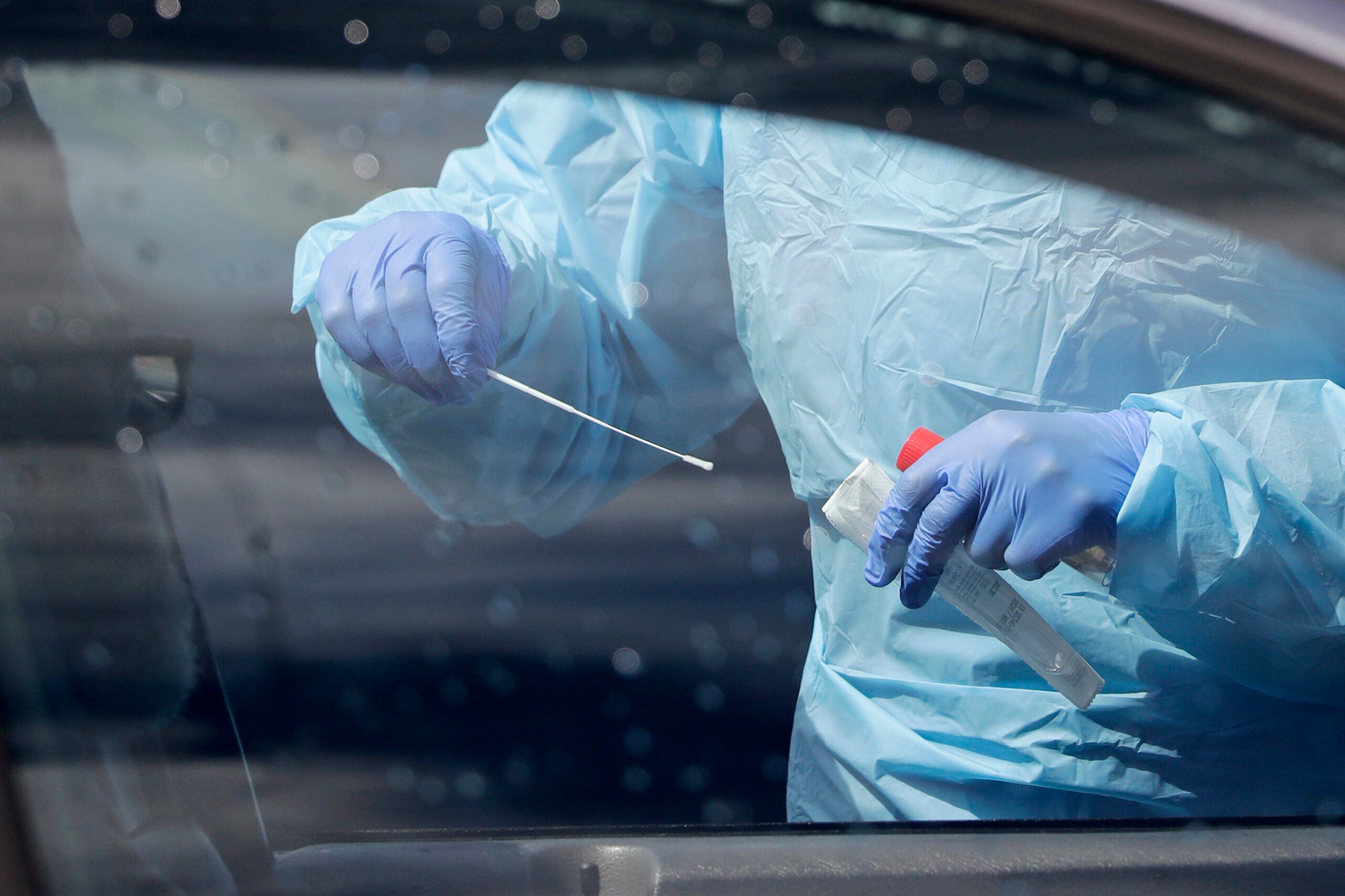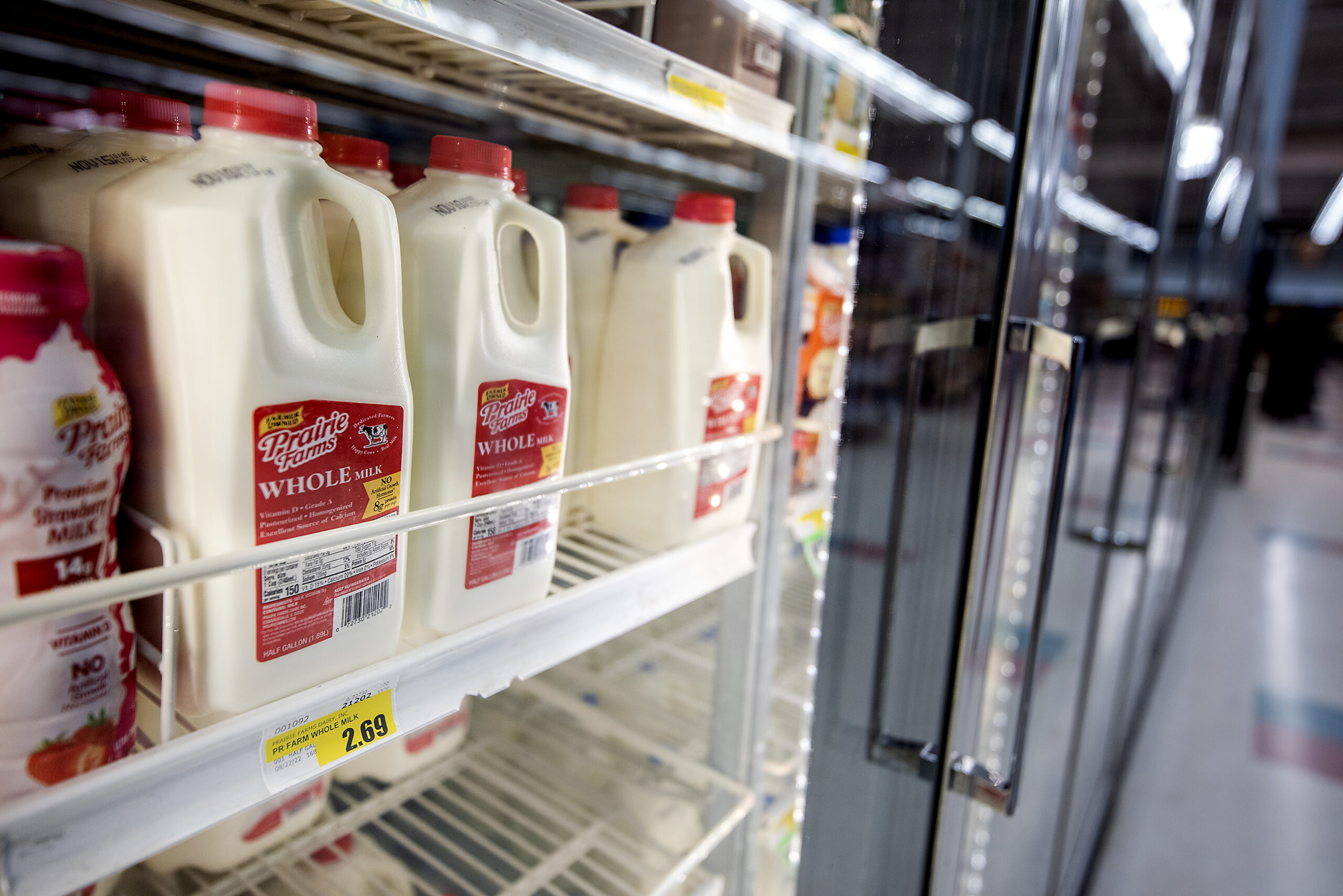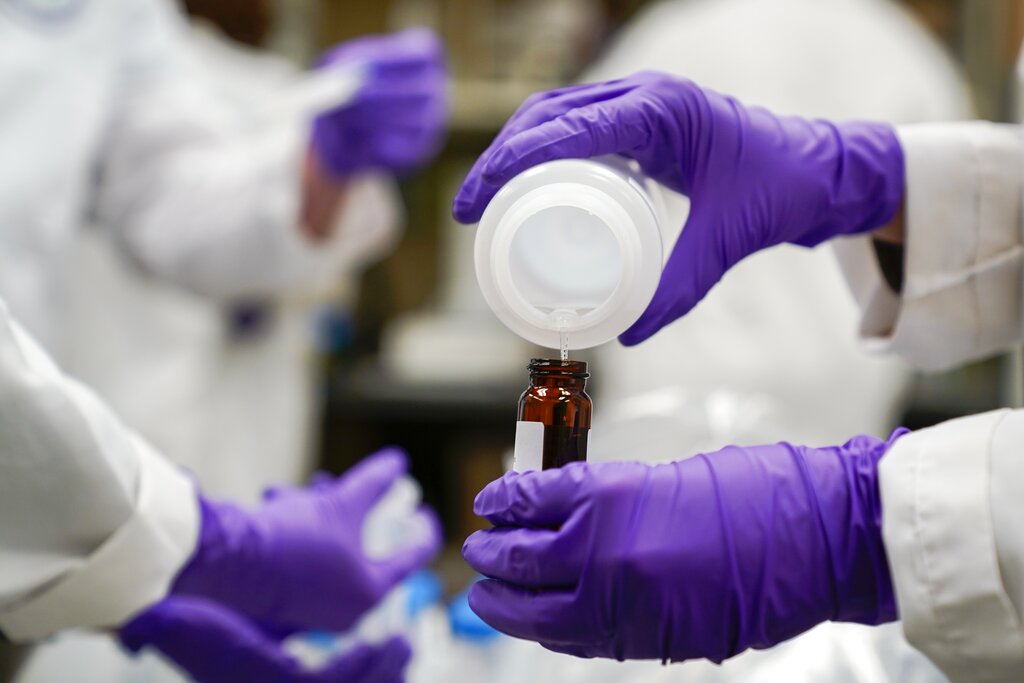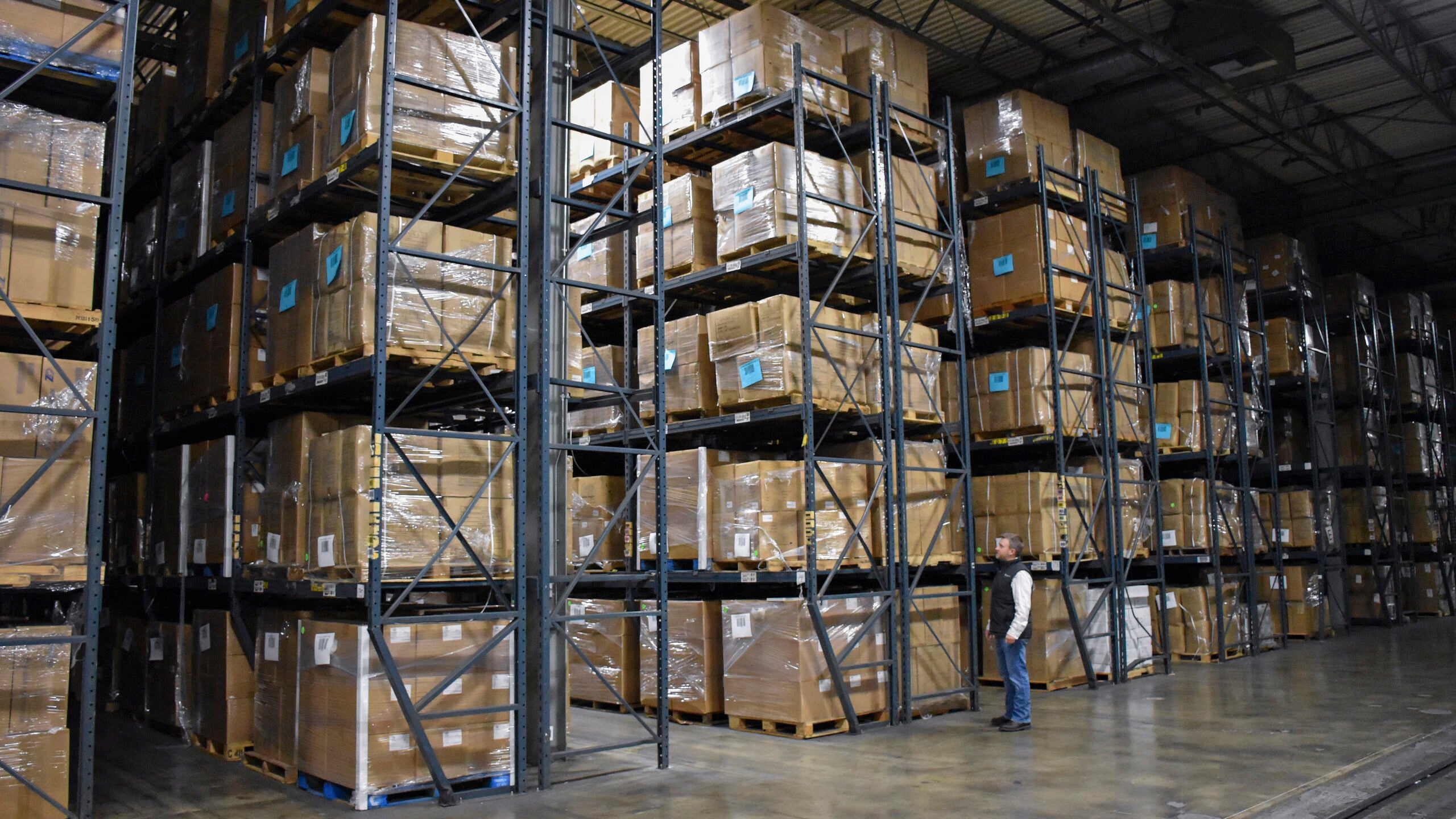Wisconsin has received more than 55 million items through the Federal Emergency Management Agency for response to the coronavirus pandemic, but some Wisconsin lawmakers have been critical of the agency and the Trump administration’s response.
FEMA has been providing assistance to Wisconsin Emergency Management in obtaining supplies, including millions of gloves, surgical masks and gowns.
However, the state and nation have struggled with a shortage of N95 respirator masks. Those masks make up some of the most urgent needs in Wisconsin, according to James K. Joseph, regional administrator for FEMA’s Region 5, based in Chicago.
Stay informed on the latest news
Sign up for WPR’s email newsletter.
“That’s obviously very critical to frontline health care workers and even some first responders that may have to deal with COVID-positive patients,” said Joseph.
The federal agency recently delivered around 180,000 N95 masks to Wisconsin, which were received on Monday.
The N95 masks are probably the most requested item among counties and tribes in the state, according to Dr. Darrell Williams, administrator for Wisconsin Emergency Management. Williams said state officials have encouraged them to seek personal protective equipment locally before requesting supplies from the state due to the shortage of materials nationwide.
“That doesn’t prevent people from requesting them even though we may not have them at that moment, but once we get them, we tried to fulfill those requests as quickly as possible in a priority fashion,” said Williams.
FEMA also plans to deliver a Battelle N95 decontamination unit to extend the use of those respirators in early May. The unit can sanitize masks up to 20 times.
Wisconsin Emergency Management officials said FEMA is also sending the state 159,000 cloth masks that will be split between emergency services, food production and distribution workers, as well as other essential businesses.
According to FEMA, the following supplies have been provided to Wisconsin to date:
- 534,970 N95 Respirators
- 2,117,889 surgical masks
- 128,371 face shields
- 1,545,504 surgical gowns
- 14,972 coveralls
- 51,264,642 gloves
- 10,000 testing swabs
- 10,000 testing mediums
Yet, Wisconsin lawmakers, including Democratic U.S. Rep. Mark Pocan, have said supplies have fallen short of the state’s needs. Pocan has been critical of the agency, but said the real problem is a lack of response from the Trump administration.
“They have not directed FEMA to actually get supplies to the states. Instead, they’re taking credit for anything the state buys through the private markets, and they’re getting some limited supplies through the CDC,” said Pocan.
A FEMA spokesperson said the agency is expediting the movement of supplies obtained on the global market and covering the cost to fly them to the U.S. from overseas factories.
The congressman also argued much of the supplies delivered by FEMA were given to states prior to Gov. Tony Evers’ request for additional testing materials. The agency has delivered three shipments of supplies from the Strategic National Stockpile and last week provided 10,000 swabs and 10,000 testing mediums to the state.
Wisconsin has the capacity to conduct around 11,000 tests per day, but it’s currently conducting about 2,000 due to the shortage of testing materials and protective equipment.
“The Trump administration should be using the Defense Production Act and having more companies in the United States producing personal protective equipment, producing reagents and producing test kits so that we have what we need here,” said Pocan. “The fact that we’re relying on China largely for these supplies is really beyond ridiculous.”
On Friday, Wisconsin U.S. Sen. Tammy Baldwin joined fellow Democrats in calling for full utilization of the Defense Production Act, which gives the federal government more control over industrial production in emergencies. U.S. Sen. Lindsey Graham, R-South Carolina, has also called for less reliance on foreign production of medical supplies in recent days.
FEMA’s Supply Chain Task Force has been working to expand production by adding machinery or changing assembly lines to help manufacturers produce them. Joseph noted some of the biggest challenges with producing materials lie in the supply chain.
“We’ve seen over the last several weeks, corporations voluntarily increasing their production. What happens in many situations, though, is sometimes as that production is increased, those are increased in other countries,” said Joseph. “It may take 35 to 40 days by ship for these medical distributors to bring those products to the United States.”
The agency has been chartering planes through its “Project Air Bridge” to speed up their arrival, but Joseph noted about half of those materials are destined for the nation’s most impacted cities.
“We’re doing our best to adjudicate resources nationally, and we’re going to continue to work with the states to ensure that they have the supplies that they need,” said Joseph.
FEMA has spent around $5.9 billion for emergency protective measures nationwide as of Saturday. The agency has also reserved $56.4 million for the state in its COVID-19 response, as well as $24 million for design and construction of alternate care facilities in Milwaukee.
Wisconsin Public Radio, © Copyright 2025, Board of Regents of the University of Wisconsin System and Wisconsin Educational Communications Board.







